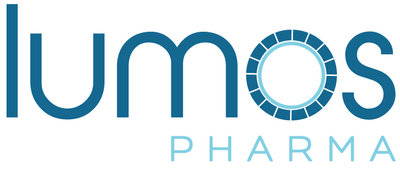

Lumos Pharma Announces a Clinical Collaboration with Massachusetts General Hospital (MGH) to Evaluate Oral LUM-201 in Nonalcoholic Fatty Liver Disease (NAFLD) in a Phase 2 Investigator-Initiated Trial
Lumos Pharma, Inc. (NASDAQ:LUMO), a clinical-stage biopharmaceutical company focused on therapeutics for rare diseases, initially targeting pediatric growth hormone deficiency, today announced a collaboration with Laura Dichtel, MD of Massachusetts General Hospital to evaluate the orally administered growth hormone (GH) secretagogue, LUM-201, in Nonalcoholic Fatty Liver Disease (NAFLD). The investigational new drug (IND) application for this pilot trial has received a study may proceed letter by the FDA.
“I look forward evaluating the use of LUM-201 for patients with NAFLD," said Laura Dichtel, MD, Assistant Professor, Harvard Medical School, Department of Endocrinology, Neuroendocrine Unit. "Prior studies have demonstrated growth hormone’s potential to treat NAFLD, given the hormone’s lipolytic actions in addition to its role as an anti-inflammatory cytokine. Based on these findings, LUM-201, an oral growth hormone secretagogue, could prove to be an efficacious therapeutic for those suffering from this chronic liver disease.”
“Lumos Pharma is honored to partner with Dr. Dichtel and Massachusetts General Hospital to evaluate LUM-201 in NAFLD,” commented Rick Hawkins, CEO and Chairman of Lumos Pharma. “Nonalcoholic fatty liver disease is estimated to be prevalent in approximately 25% of adults worldwide. Hepatic steatosis can progress to nonalcoholic steatohepatitis (NASH) with fibrosis, and NASH-associated liver failure is one of the leading causes of liver transplant in the United States. While we remain focused on our core LUM-201 program in PGHD and identifying the next therapeutic area for LUM-201, we are pleased to support Mass General’s exploration of additional indications for LUM-201.”
This investigator-initiated Phase 2 trial is a single-site, 6-month, open-label pilot study of daily oral LUM-201 in adults with NAFLD. The trial will evaluate a dose of 25 mg/day of LUM-201 in 10 men and women with NAFLD. GH is a critical stimulator of lipolysis, and preclinical data suggest that amplifying GH secretion has the potential to reduce hepatic steatosis and prevent NAFLD progression. Interestingly, enhancing the natural pulsatile release of GH has been shown clinically in short-term studies to be more efficacious in inducing lipolysis than continuous infusions of GH. The primary endpoints will be to determine the changes in both intrahepatic lipid content and hepatic inflammation and fibrosis with growth hormone (GH) augmentation as measured by 1H-MRS and Perspectum’s LiverMultiScan®. Perspectum’s LiverMultiScan® is the leading non-invasive digital tool for liver diagnostics, giving physicians key indications of liver tissue characteristics to empower their diagnostic and patient management decisions. Biopsies will be conducted on a subset of patients to obtain additional information at the genetic and cellular level in this indication.
Lumos Pharma approved an unsolicited grant application for this study and will supply LUM-201 for this pilot trial. Lumos Pharma has a pending application for a method-of-use patent for LUM-201 in NAFLD and retains all intellectual property rights for LUM-201 in this indication.
About LUM-201
LUM-201 (ibutamoren) is an orally administered small molecule that promotes the secretion (secretagogue) of Growth Hormone (GH) from the pituitary gland.1 LUM-201 acts as an agonist of the GH Secretagogue Receptor to stimulate GH release and to suppress the release of somatostatin.2 LUM-201 has been observed to increase the amplitude of endogenous pulsatile GH secretion in humans, which mimics the natural pattern of GH secretion. 3,4 This therapeutic candidate has been studied in more than 1,200 patients, both adult and pediatric, and was generally well tolerated with the most commonly reported adverse events being digestive systems events, including appetite increase. Mild elevations in liver enzymes without accompanying changes in bilirubin were also reported. LUM-201 has received Orphan Drug Designation in both the US and EU.
About Nonalcoholic Fatty Liver Disease (NAFLD)
Nonalcoholic fatty liver disease (NAFLD) is a buildup of excess fat in the liver (hepatic steatosis) in the absence of significant alcohol consumption. Hepatic steatosis can progress to nonalcoholic steatohepatitis (NASH) with fibrosis, and NASH-associated liver failure is one of the leading causes of liver transplant in the United States. It is estimated that approximately 25% of the worldwide adult population have NAFLD and an estimated 1.5-6.4% of the worldwide adult population have NASH.5
About Lumos Pharma
Lumos Pharma, Inc. is a clinical stage biopharmaceutical company focused on the development and commercialization of therapeutics for rare diseases. Lumos Pharma was founded and is led by a management team with longstanding experience in rare disease drug development and received early funding from leading healthcare investors, including Deerfield Management, a fund managed by Blackstone Life Sciences, Roche Venture Fund, New Enterprise Associates (NEA), Santé Ventures, and UCB. Lumos Pharma’s lead therapeutic candidate is LUM-201, an oral growth hormone stimulating small molecule, currently being evaluated in a Phase 2 clinical trial, the OraGrowtH210 Trial, and a PK/PD trial, the OraGrowtH212 Trial, for the treatment of Pediatric Growth Hormone Deficiency (PGHD). If approved by the FDA, LUM-201 would provide an orally administered alternative to recombinant growth hormone injections that PGHD patients otherwise endure for many years of treatment. LUM-201 has received Orphan Drug Designation in both the US and EU.
1 Patchett A.A., et al. Design and Biological Activities of L-163,191 (MK-0677): A Potent, Orally Active Growth Hormone Secretagogue, Proc Natl Acad Sci, 1995, 92:7001-7005.
2 Howard A.D., et al. A Receptor in Pituitary and Hypothalamus that Functions in Growth Hormone Release, Science, 1996, 273:974-977.
3 Nass R., et al. Effects of an Oral Ghrelin Mimetic on Body Composition and Clinical Outcomes in Healthy Older Adults, Ann Intern Med, 2008, 149:601-611.
4 Chapman I.M., et al. Oral Administration of Growth Hormone (GH) Releasing Peptide-Mimetic MK-677 Stimulates the GH/Insulin-Like Growth Factor-I Axis in Selected GH-Deficient Adults, J Clin Endocrinol Metab, 1997, 82(10):3455-3463.
5 Younossi Z.M., et al. Global epidemiology of nonalcoholic fatty liver disease – Meta-analytic assessment of prevalence, incidence, and outcomes. Hepatology, 2016;64(1):73-84.
